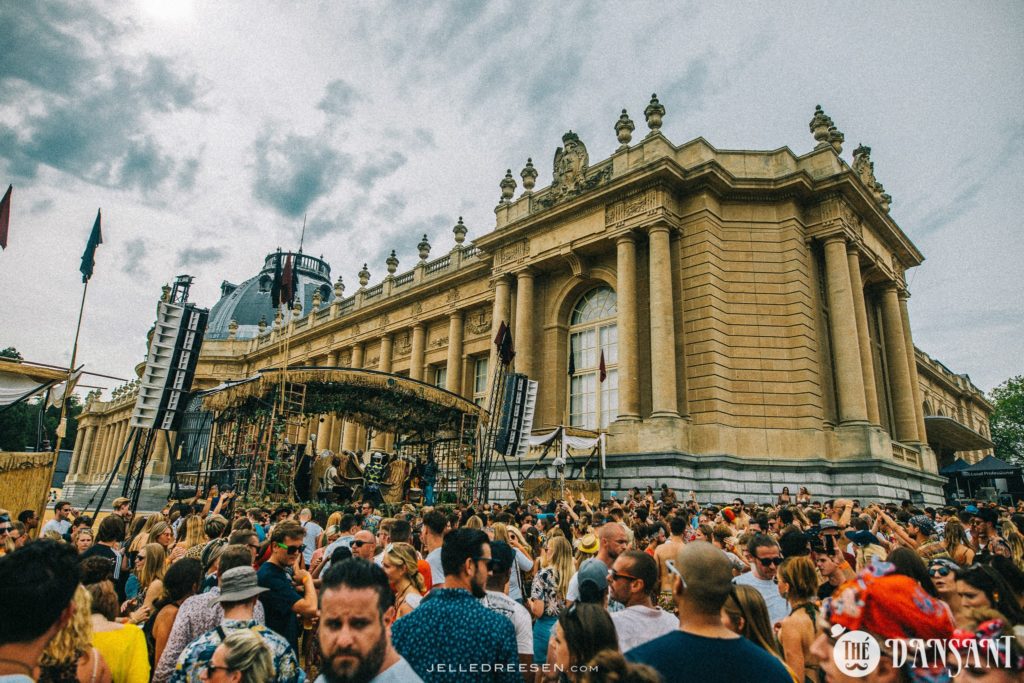The authorities of the Africa Museum in Tervuren have been defending the institution against criticism following a private party held at the weekend in the grounds of the museum.
The one-day festival was organised by party organisers Thé Dansant to celebrate their tenth anniversary, and involved guests being invited to dress in “African” style to match the theme of the event. That resulted in a profusion of African prints and fake leopardskin, as well as one pith-helmeted explorer and, according to reports, one man in blackface.
Café Congo, an artistic collective involved in reflection on Belgian-Congo relations, drew attention to the event on Facebook.
“Explain to me how this sort of event – Thé Dansant – can continue to exist in 2019 at the Africa Museum. Are the management and communications team on Xanax?#NotMyAfricaMuseum#blackface”
The museum itself edited its Facebook announcement of the event to include a disclaimer: “Thé Dansant is an independent event. The AfricaMuseum is not involved in the event organization or communications, nor are we responsible for its performers, attendees, other participants, and choices regarding the depiction of African culture and peoples.”
According to spokesperson Primrose Ntumba, not only was the Museum not involved in the event, it could not have stopped it even had it wished to, because the building and its grounds come under the authority of the federal buildings agency. But the link with the museum is easily assumed.
“The museum continues to be a symbol in Belgium of colonialism. If you organise an event on the steps of a building that has been in the media a great deal over the past year, then I find it extremely regrettable that Thé Dansant failed to see that an African dress-up party is bound to provoke angry reactions, particularly in this location.”
The organisers had announced the theme of the event simply as “African,” explained Kjell Materman of Thé Dansant to Bruzz. “People are free to interpret that as they will. We asked them to dress colourfully and to use African prints. Personally I saw no-one with their face painted black.” Bruzz reports that a photo of a man in blackface on the group’s own Facebook page has since been deleted. “Well then you’re talking about one isolated incident in a group of 2,000 people,” Materman said.
“Ethnic, exotic or African is not a costume you put on and take off,” said Emma Lee Amponsah of Café Congo. “The organisers may not have specifically called for blackface, but they did call for a particular vibe in the guise of an Afro-beat party.” And she pointed to the stage decorations, including human skulls on sticks surround the drummers on stage.
“That ritual, voodoo and cannibalism – that imagery was very carefully chosen, and that is how stereotypes come into being.”
Alan Hope
The Brussels Times

